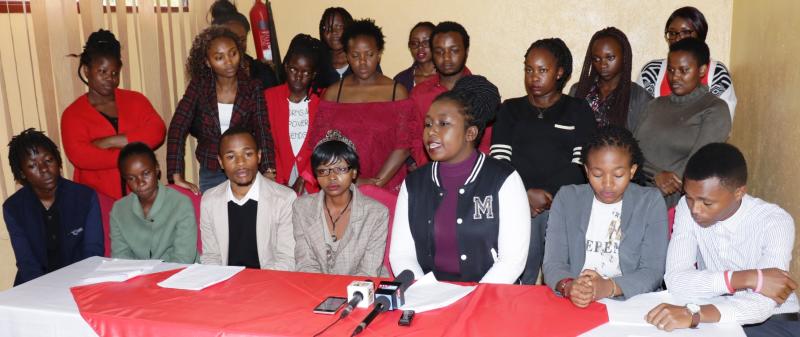×
The Standard e-Paper
Stay Informed, Even Offline

A group of young people have called upon the government to initiate sex education to prevent cases of teenage pregnancies.
The youth under the banner ‘Young Champions of Human Sexuality Education’ say while rampant teenage pregnancies have been reported all over, young people are yet to be given an opportunity to speak on how to solve the problem. The group brings together young people in and out of school.